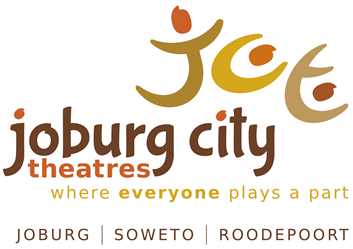OVERVIEW OF ROODEPOORT THEATRE
 Roodepoort Theatre – A Brief History of the Building Pro Musica – 1980 to 2008 The Roodepoort Civic Theatre was founded in 1980.
Roodepoort Theatre – A Brief History of the Building Pro Musica – 1980 to 2008 The Roodepoort Civic Theatre was founded in 1980.
The theatre operated as a 328 seater auditorium and an 80-seater box theatre. On the initiative of it’s first director, Weiss Doubell, the theatre became, apart from a receiving theatre, also a producing theatre with its own production units – the Pro Musica Orchestra, Opera Company and Opera Chorus. The name of the theatre was later changed to the Pro Musica Theatre. The theatre was initially subsidised by the Roodepoort City Council (later the City of Johannesburg). Sponsorships had to be found to help finance its enterprises, projects such as audience development, and productions, to ensure sustainability. Up until 2008, Pro Musica presented 400 opera performances and 500 symphony concerts.
Renowned international artists regularly performed in the theatre such as Nigel Kennedy (violinist), Christian Blackshaw (pianist), Mischa Maisky (cellist), Oxana Yablonskaya (pianist), Gerd Seiffert (horn-player), Ilan Rogoff (pianist), Marisa Robles (harpist), Gary Carr (bassist), Gérard Souzay (baritone), Elly Ameling (soprano), Sir Thomas Allen (baritone), Gundula Janowitz (soprano) and Jenny Drivala (soprano). Famous South African artists also performed here – Mimi Coertse (soprano), Deon van der Walt (tenor), Werner Nel (baritone), Oystein Liltved (bass), Sibongile Khumalo (mezzo-soprano), Otto Maidi (bass), Hans van Heerden (baritone), Marita Napier (soprano), Manuel Escorcio (tenor), Francois du Toit (pianist), Ben Schoeman (pianist), Alma Musica Trio, Petronel Malan (pianist) and Zanta Hofmeyr (violinist).
The performing arts councils, especially the Performing Arts Council of the Transvaal (PACT), often presented their productions in the Pro Musica Theatre. As a community theatre, the theatre was always available to schools (operettas, revues, choir festivals), ballet companies (Ballet Theatre Afrikan, Johannesburg Youth Ballet), dance companies (Roodepoort Dance Festival), theatrical companies (ATKV, RUKO, Roodepoort Little Theatre, Theandaba Spielbühne), bands (Tony Yoko’s Jazz Band) and other local artists. Much importance was attached to performance opportunities for the youth. Many young soloists made their opera debut with the Pro Musica Orchestra including Johan Botha (internationally renowned tenor), Estelle Kruger, Sally du Randt, Kobie van Rensburg, Deon van der Walt (main role debut). Of the 79 singers who made their debut on Pro Musica’s stage, 44 are still professionally active in the opera industry and 19 are enjoying international careers. Concerts to introduce young soloists were presented –Mimi Stel Voor; Emma Stel Voor – and Barry Coleman, Charl van Heyningen and Bongani Thembe, amongst others, were introduced to theatre-goers. Another debutante, Angelina Thabane, who performed on Pro Musica’s stage in 1981, became the first black soprano to perform professionally on a South African theatre stage. School choirs were engaged to perform in Pro Musica opera productions.
The choirs of the primary schools Gustav Preller, Helderkruin and Horison performed in Hänsel und Gretel (Humperdinck), choirs of the secondary schools Goudrif and Florida performed in Gounod’s Saint Cecilia Mass and the Florida choir in Martha (Von Flotow). The Collegium Musicum students performed with the orchestra as well as other soloists of the Potchefstroom University (North West University). Many young instrumentalists of Pretoria University’s Music Academy made their debut with the Pro Musica Orchestra such as Ben Schoeman (pianist) and Tinus Botha (pianist), as did instrumental soloists of the Johannesburg School for the Arts, Ballet and Music (Youth Concerto Festivals). Co-productions with other production companies were also undertaken Co-productions with PACT included La Traviata (Verdi), The Merry Widow (Léhar), The Sound of Music; with Opera Africa, Die Zauberflöte (Mozart) and Carmen (Bizet). The South West Africa Performing Arts Council (SWAPAC) co-produced RAKA with a black cast. Other co-productions were undertaken with The Performing Arts Council of the Orange Free State (PACOFS).
The University of Pretoria’s symphony orchestra and Pro Musica Orchestra combined for concerts in Pretoria and Roodepoort under the batons of Professor Henri Arends-d’Aranyi and Weiss Doubell. Larger works for orchestra and chorus were often performed with choirs from other communities including the Choir of St. Bernard the Martyr (Atteridgeville), Mohlakeng Methodist Choral Society (Randfontein), Dobsonville Chorale (Soweto), Bonisidumo Choristers (Springs), Johannesburg Bach Choir, Musica Mundo (Johannesburg), Pretoria Oratoria Chorus, Randburg Male Voice Choir. The Messiah (Händel) was often performed in Mmabatho; in the Eisteddfod – tent in Roodepoort and annually at Easter time, for 17 years, on the Nelson Mandela Square in Sandton. Pro Musica regularly performed in other venues. Opera was produced in the Oude Libertas Theatre (Stellenbosch), the Witbank Civic Theatre, the Aula (Pretoria), the State Theatre (Pretoria), the Johannesburg Civic Theatre, the Etienne Rousseau Theatre (Sasolburg) and the Johannes Stegmann Theatre (Secunda).
Orchestral concerts were given in the Sand du Plessis Theatre (Bloemfontein), the H.F. Verwoerd Theatre (Springs), the Auditorium of the RAU (now known as the University of Johannesburg), the Wits University Great Hall, the Musaion (University of Pretoria), the Conservatory Hall (North-West University), in Embalenhle (Secunda), Meadowlands and Dobsonville (Soweto). A number of concerts were performed in the Johannesburg City Hall, as well as regular performances in churches and cathedrals such as St. Mary’s’ Cathedral (JHB), Cathedral of Christ the King (JHB), St. Alban’s Cathedral (PTA), the Regina Mundi Church (Soweto). Pro Musica often featured at arts festivals including Aardklop (Potchefstroom) and Grahamstown National Arts Festival. In 1992 the Pro Musica Orchestra went on a concert tour of France. The tour took place under the auspices of UNESCO and the highlight was the concert in the UNESCO Great Hall; attended by heads of state, diplomats and other European dignitaries and televised internationally.
Pro Musica, therefore, became the first South African orchestra to perform overseas, after the lifting of the cultural boycott against South Africa. Pro Musica was involved in pioneering work regarding opera in South Africa. DerFreischütz (Weber), Die Lustigen Weiber von Windsor (Nicolai) and Romeo et Juliette (Gounod) had their South African debuts in the Roodepoort Civic Theatre. Fidelio (Beethoven) had it’s Transvaal debut in Roodepoort and Symphony of Sorrowful Songs (Gorecki) had it’s African debut.
AxionEsti (Mikis Theodorakis) was played for the first time in Africa by Pro Musica under the baton of the composer himself (Unisa). In 1996 Pro Musica gave the first performance of works of the German composer, Manfred Stahnke, (Delphi Monodi and Portrait Pawel Filonow) with the composer in the audience. This was a joint project with the Goethe Institute. Works by South African composers were often included in symphonic programmes including Die Skilderye van Henri Rousseau (Hubert du Plessis), Sinfonietta for Chamber Orchestra (Henk Temmingh). Music tuition was also attended to. From 1994, several wind instrumentalists in the orchestra tutored to previously disadvantaged students, in Soweto and at the Roodepoort Theatre. In 2005 a vocal tuition scheme was also been introduced whereby choir members received vocal training from the Pro Musica Chorus’ choirmaster. The first director of the theatre and production companies, Weiss Doubell, retired in 2008. In 2008 the production units were disbanded. Although the theatre had become synonymous with classical music and the lyric arts, profitability had to improve. The Theatre also needed to become more relevant to the community it served. During 2009/2010 the strategic positioning of the organization was reviewed, resulting in a stronger focus on the receiving house aspects of Pro Musica, and a more concerted effort to attract independent producers to the venue.
The Theatre made major progress in terms of the diversification of its production and marketing mix, which consequently had a significant impact on the diversification of audiences. As a result of its size, the Theatre was not always in a position to attract sufficient artistic product to keep the stages occupied. The theatre acted as a producing house and staged work in a diverse range of genres, including music and musical theatre, comedy, and children’s theatre. In addition, the theatre played a significant developmental role by means of providing a venue for community theatre initiatives in the area, as well as running tuition programmes that provided instrumental, vocal, dance and drama tuition for students from disadvantaged backgrounds.
In 2012 Pro Musica was tasked with the launch of the new Soweto Theatre in Jabulani, Soweto. The City of Johannesburg, as part of its Institutional Review of 2012, resolved that Joburg Theatre (SOC) Ltd and Roodepoort City Theatre (NPC) t/a Pro Musica be integrated into a single theatre management company. The theatre management company, now known as Joburg City Theatres (JCT), renders the functions and services that, until 31 December 2012, were rendered by the 2 theatres. It also institutionalized the operation of the newly established Soweto Theatre. The effective date of the integration was 1 January 2013. In 2013 the theatre’s name was changed to the Roodepoort Theatre, under the leadership of JCT’s Chief Executive Officer, Bernard Jay. Experienced theatre practitioner, Xoliswa Nduneni Ngema, took over as CEO of JCT in July 2013.
OVERVIEW OF ROODEPOORT THEATRE
